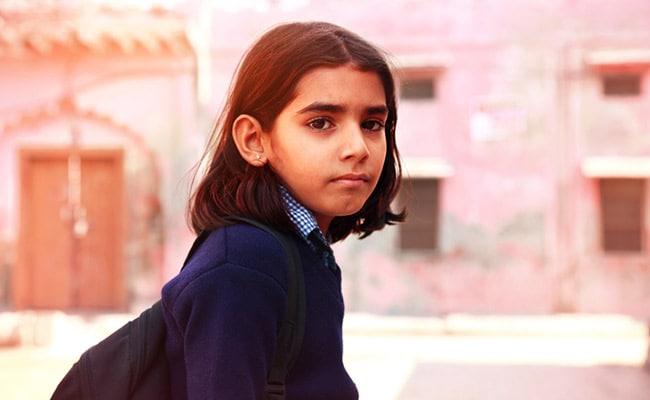A number of educational administrators and policy makers have used this celebration of the Finnish model of education, as an excuse and an opportunity to study it at close range in Finland. Yet, just this month, we have put into parliament a legislation to amend the RTE Act to allow children to be 'failed' in exams and therefore punished with the humiliation of being detained and made to repeat the year.
It is our policy makers who do not learn it seems.
With regards,
Nalini Juneja
Prof. Nalini Juneja
Nalini Juneja
Prof. Nalini Juneja
Former (now retired):
Head, Dept of School& Non Formal Education
National University of Educational Planning and Administration
National University of Educational Planning and Administration
17-B, Sri Aurobindo Marg (NCERT Campus)
New Delhi 110016
On 30 August 2017 at 16:34, Prof. Bholanath Dutta <bnath.dutta@gmail.com> wrote:
--NEW DELHI: If you search Google for the best school education system in the world, Finland will dominate the result. With an education system which is vastly different from that of US, UK and other European countries, Finland has been at the top of the game for decades now. The education system in Finland allow students autonomy and encourage creative play instead of pitting students in a competitive race for top grades. The education system in Finland is not just exemplary but also poses a question mark to the rationality of education systems which are entirely built upon the principle of competition and assessment exams.
The main point which sets Finnish education system apart is that children here start formal schooling as late as when they are seven years old. Children also do not sit in any national assessment exam until they are sixteen.
Focus on Child's Individuality: Finnish Education System
Children begin their primary education at the age of seven, before that every child is given Early Childhood Education and Care (ECEC). One of the values followed in ECEC is that educators give due weight to the views of a child. The early years do not follow principles of formal education but focus on the promotion of child's health and well-being.
In the Finnish system, Children are treated as individuals and the attempt is to maximize each of their potential. Finnish children also rarely get homework. The teachers have absolute autonomy over the methods of teaching which makes it easier for them to experiment and help students learn in more engaging manner.
In Finland, students do not sit for any national tests until the age of 16. The assessment is done by teachers who determine the evaluation methods based on the objectives set for their respective subjects. The basic education policy also tasks teachers to help students evolve self-assessment capabilities. The self-assessment help students learn to be aware of their own growth and the learning process.
With focus entirely upon a child's individual potential, the Finnish education system provides a sharp contrast to Indian education system where, in the past decade particularly, the focus has entirely been upon the grades and percentage.
What Should India Learn?
In Indian education system, board exams mark two important milestones. The board exams are conducted once after class 10 and then after class 12. The board exams are conducted at national level by CBSE and ICSE boards and at state levels by respective state boards. There is no standard syllabus and hence children often study a different curriculum based on the board with which their school is affiliated to.
The board exams are do not so much assess a student's understanding of what they have learned but grade a student on their capability to memorize things written in the text books. Indian school systems epitomize the rote method of learning leaving little to no scope for a student's creative impulses.
The CBSE board, a few years ago, introduced High Order Thinking Skills (HOTS) type questions in board exams in order to discourage the rote learning methods. However, the desired effects have not taken shape.
Taking a cue from the Finnish system, Indian education system should also mold itself in a way to encourage a child's creative impetus rather than subjecting them to the methods of memorizing lessons. Indian schools also need to cut back on the amount of homework a student gets. Homework has been reduced to being mere tools to ensure that a child memorizes what was taught in a lesson.Source: NDTV--EDUCATE, EMPOWER, ELEVATEProf. Bholanath DuttaFounder & PresidentMTC Global: A Global Think Tank inHigher Education, ISO 9001: 2008Partner: UN Global Compact I UN Academic ImpactCell: +91 96323 18178 / +91 9964660759
The views expressed are individual and not necessarily MTC Global also share the same views. To unsubscribe from the group , please send an email to join_mtc@googlegroups.com and write the heading as 'Unsubscribe'. Immediate action will be taken.
---
You received this message because you are subscribed to the Google Groups "Management Teachers Consortium, Global" group.
To unsubscribe from this group and stop receiving emails from it, send an email to join_mtc+unsubscribe@googlegroups.com .
For more options, visit https://groups.google.com/d/optout .
The views expressed are individual and not necessarily MTC Global also share the same views. To unsubscribe from the group , please send an email to join_mtc@googlegroups.com and write the heading as 'Unsubscribe'. Immediate action will be taken.
---
You received this message because you are subscribed to the Google Groups "Management Teachers Consortium, Global" group.
To unsubscribe from this group and stop receiving emails from it, send an email to join_mtc+unsubscribe@googlegroups.com.
For more options, visit https://groups.google.com/d/optout.




0 comments:
Post a Comment